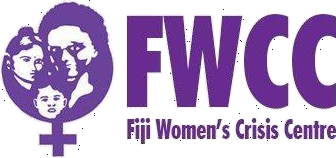Ratu Joni spoke of the intersection between the rule of law and violence against women. He highlighted the impact custom can have on the status of women in the Pacific.
“Custom, which is the application of tradition and culture, disadvantage and marginalise women. They reinforce acceptance of violence against women because they perpetuate notions of their inferior status,” Ratu Joni said.
“It is a short step from that rationale to justifying beatings, forced marriages, rape and killings of women. I do not underestimate the enormity of the problems that some of you face daily. This event is actually a respite from that reality.
“But what I am merely saying is that we must be clear in our own minds that the rule of law is incompatible with these situations. However, they have to be changed and removed within the system. The rule of law is about making changes in the appropriate manner according to accepted procedures.”
Ratu Joni told participants that the rule of law as it relates to violence against women can only be effective when advocates against violence, engage it.
“This occurs at a number of levels simultaneously whether it is strategising, formation of policy, drafting of legislation, adjudication of laws, enforcement, and advocacy. And while it is a specific area, it cannot be isolated from the debate around women’s rights, human rights and equality generally.
“They are closely linked, because the issue is ultimately about equal treatment and the right to live without fear of abuse. That is why the need to build alliances in civil society and beyond is self-evident. Because one has to change social attitudes and this is often a generational phenomenon. But it also has to be constantly reinforced, because violence against women is a feature of more affluent societies as well.”
Sixty women and men from around the region have gathered for the meeting which the Fiji Women’s Crisis Centre facilitates every four years. This year’s meeting will discuss strategies practitioners who work in the area of violence against women can use to reduce the high levels of gender-based violence in the region.
Women and men from 11 Pacific countries, as well as New Caledonia, are attending the week-long meeting.
Held every four years since 1992, the Pacific Regional Meeting on Violence Against Women, brings together practitioners from Cook Islands, Fiji Islands, Kiribati, Marshall Islands, Nauru, New Caledonia, Papua New Guinea, Samoa, Solomon Islands, Tonga and Vanuatu.
